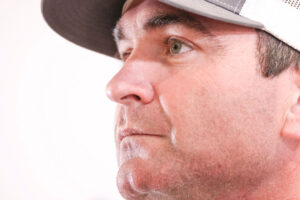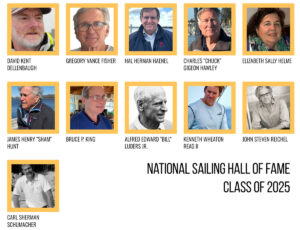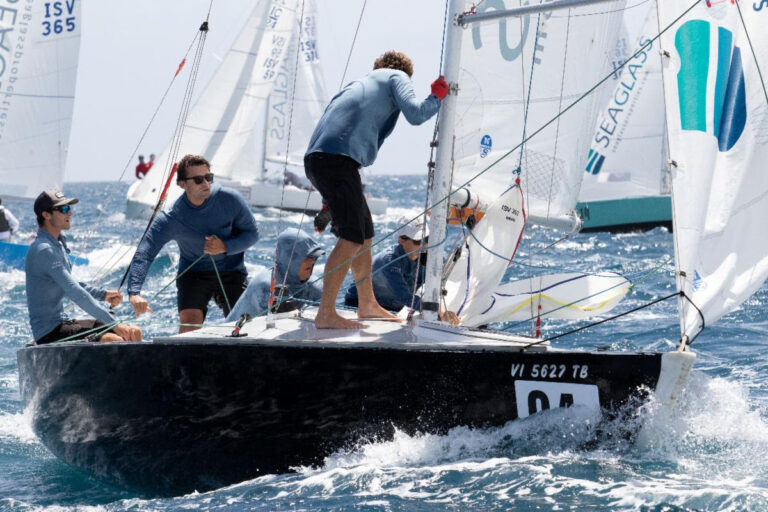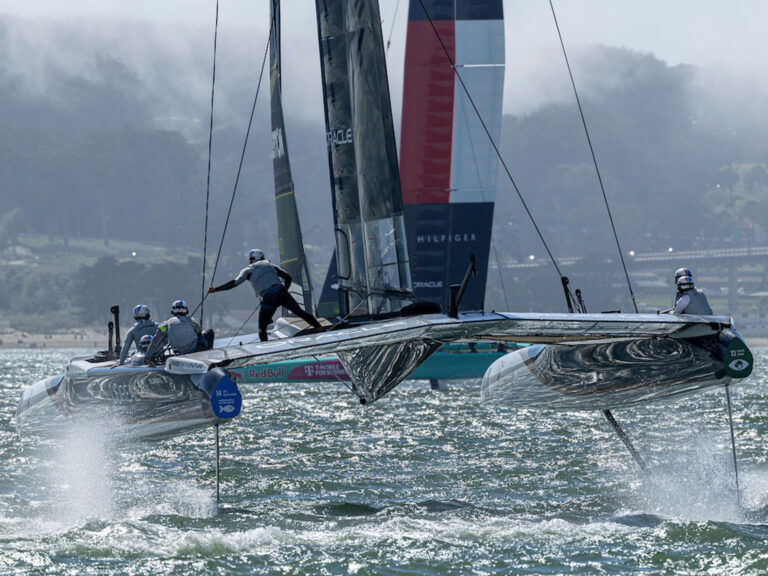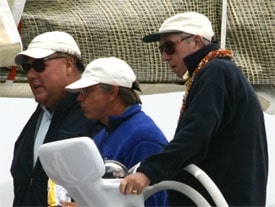
Robbie Haines
If you’re looking for a Transpac mentor, you’d be hard pressed to do better than Robbie Haines. The 1984 Olympic Soling gold medalist has completed 12 of the races from Los Angeles to Hawaii and twice broken the elapsed time record, in 1997 and 1999. He’ll be in charge of the Morning Light selection trials in Long Beach, Calif., and the training in Hawaii that will follow for the 15 sailors who make the final cut. Tell us a little about your role with the Morning Light project?I’ve been hired by Roy and the Walt Disney company to basically head up the sailing part of this movie as far as coordinating the boats and sailboats and, when we get to Hawaii, training the kids, making sure they are safe crossing the ocean and knowledgeable and race-prepared. I’m part of the selection committee as well. We have four judges coming in and then myself, Roy, and Leslie DeMeuse are part of the selection committeeWho are your judges?We’ve got Stan Honey, Scot Ikle, Andrew Campbell, and Carol Buchan.That’s an interesting mix.It is, a youngster and an old salt. Scott’s been around. I’ve heard he’s a very good coach. I haven’t met him. And then we’ve got Carol who is the female and has a lot of experience in one-design dinghies. Basically I picked these guys because I think they are really good judges of character. That’s a big part of this thing-the people. Not the sailing skills, but their personality and how they’re going to mix with the other sailors and their ability and willingness to learn.How many initial applications did you get?538Were you happy with that number?It’s funny. I’ve had some people say they thought we’d get thousands and I’ve had some people say, “What an unbelievable turnout.” Personally I thought it was a really good turnout. I didn’t think we get thousands of kids applying. We didn’t really put the word out on purpose. It was in Scuttlebutt and it went out to the college [email list]. We were pleased with 538 applications.It seems like a diverse group, so I’m guessing offshore sailing experience wasn’t the prime criteria?It really wasn’t. We looked at the experience that all the 30 kids had. We knew we have to fill certain slots on the boat like skipper, navigator, bowman, trimmer, and grinder. We need to pick 15 kids-and I keep using the word ‘kids’ and I shouldn’t but it’s second nature. We need to pick 15 kids that will be able to safely sail a full-on 52-foot racing boat to Hawaii. Certainly eventually, probably in May, we’re going to slot these kids in certain slots on the boat. So we did look at the potential of each applicant.What’s the range of sailing experience among the 30 finalists?I would say half the kids have pretty good sailing experience and the other half don’t. We have a couple of kids from the East Coast with very little experience. All of them can steer a boat around a course but very few have offshore experience. We have three African-Americans and we’ve got 5 females.What did you ask of each applicant?We asked each kid to submit a headshot and we asked them certain key questions: “What kind of offshore experience do you have?” “What kind of sailing experience do you have?” There was one question that asked them to write a note to their teammates describing themselves. We wanted to get a feeling of how their personalities were. Some of the answers were 2, 3, or 4 sentences. Some were 30 sentences long. There were so many parameters that we looked at, it’s hard to pinpoint one that was the most important. Certainly sailing experience was one of the big ones.During the application process did you look to include any wildcards, individuals more likely to create some drama, a la reality-TV shows like “The Real World”?Roy doesn’t want this to have anything to do with reality TV. He wants this to be a documentary, the story of a bunch of young sailors gelling at the right time. If we happen to have some drama like a love affair or a kid that’s way out of whack, but we think should be there for film reasons, that will depend on the selection committee. I have a sneaking suspicion that at the end of the week we’re going to have fairly surprising group of sailors. There will not be 15 of the top sailors on this boat. If you were giving advice to a finalist, what would you tell them?I think they have got to work hard, be themselves, and not try to be phony. I think we’re going to be able to pick up on anything that’s out of whack with these kids. They can’t do anything with their personality, that’s already ingrained in them. You can come work harder than the next guy as far as physically grinding the sail in harder or being real inquisitive and showing a lot of enthusiasm. All that stuff is going to be important in front of the judges.What is the basic plan for your selection trial?Basically the first day is relatively easy, where the kids are on the boats and they sail a straight line and get used to the boat. The second and third days we’re going to have some windward leeward courses-all this is inside the breakwater. Then we’re going to take them outside the breakwater and we’ve got some drills we’re going to put them through that we’re not telling them about, basically a surprise to see how they react to something new.And you’re going to be using the same boats the Long Beach YC uses for the Congressional Cup?Yes, four Catalina 37s. Will the teams each stay together on the same boat during the trial?We’re going to keep the same crew for the first day and then we’re going to change them around. We want each judge to sail with all the kids.And this starts this weekend?Sailing from Sunday [Aug. 6] through Saturday [Aug. 12] with no sailing on Friday. Friday’s the day we notify all the kids who’s on or off. The final day we’ve got a fun day planned and we hope the 15 that didn’t make it are going to have a good attitude. And there’s lots of team building exercises that we’re going to be doing with everyone daily. We’re going to be filming it all. What we want is an outsider’s perspective of how these kids come across on camera, which kids are naturals and comfortable with a camera. There are some standard drills you put people through. The selection committee’s not going to be involved in that, but at the end of the week, we’re going to get the input of a guy named Bill Applebaum, and actor, writer, and filmographer.Filmographer?I’d never even heard of that title.Sounds like this is a whole new world for you?I’m fine with the sailing, but when it comes to all this Hollywood stuff What about once you’ve selected the 15 sailors-what’s the plan then?The training in Hawaii is going to be over 4 months with about 10-to-13-day segments. We’re going to ship the [TP]52 over there in October and the kids arrive the first of January for 13 days. Then they go home and come back. Some of them may stay there and get a job. We’re basically going to teach them how to sail one of these things. We’ve got a major Safety at Sea thing in play with Chuck Holley and Ralf Steitz. The second session we’re going to have Stan Honey working with them on navigation and weather. The third and fourth are a little bit tentative. We’re going to have someone come in and show them about rigging and maintenance. We’re going to basically be sending them off by themselves eventually in Hawaii.There are some similarities to what you’re doing and the ABN AMRO Two boat, which was staffed with younger sailors. They lost a teammate during the Atlantic crossing. Did that create any additional concern about this program?When anybody’s ever lost at sea, it sure startles you-at least it does me. We’re going to do our very, very best to make sure this boat is very, very safe and that the participants are well-trained. We’re also going to have a support boat escort this boat to Hawaii. That’s going to happen for film reasons and for a bunch of other technical reason. So help won’t be too far away. We won’t have this boat shadow it; it’ll be out of site. But there are times when we need to come in and make contact. We have received permission from the Transpac to do that.You have a son Brian who’s around the right age. Did he apply for the program?He applied and he really wanted to do it and I think he would’ve been an excellent candidate, but he’s got the wrong last name. He’s been dealing with this his whole life. It was a little bit unfortunate; I think he’d be a good candidate. Sure enough, after the whole initial selection process, I agreed with [the decision]. I had a lot of peers who’s children applied and it may not have looked too good if my son made it and theirs didn’t.

